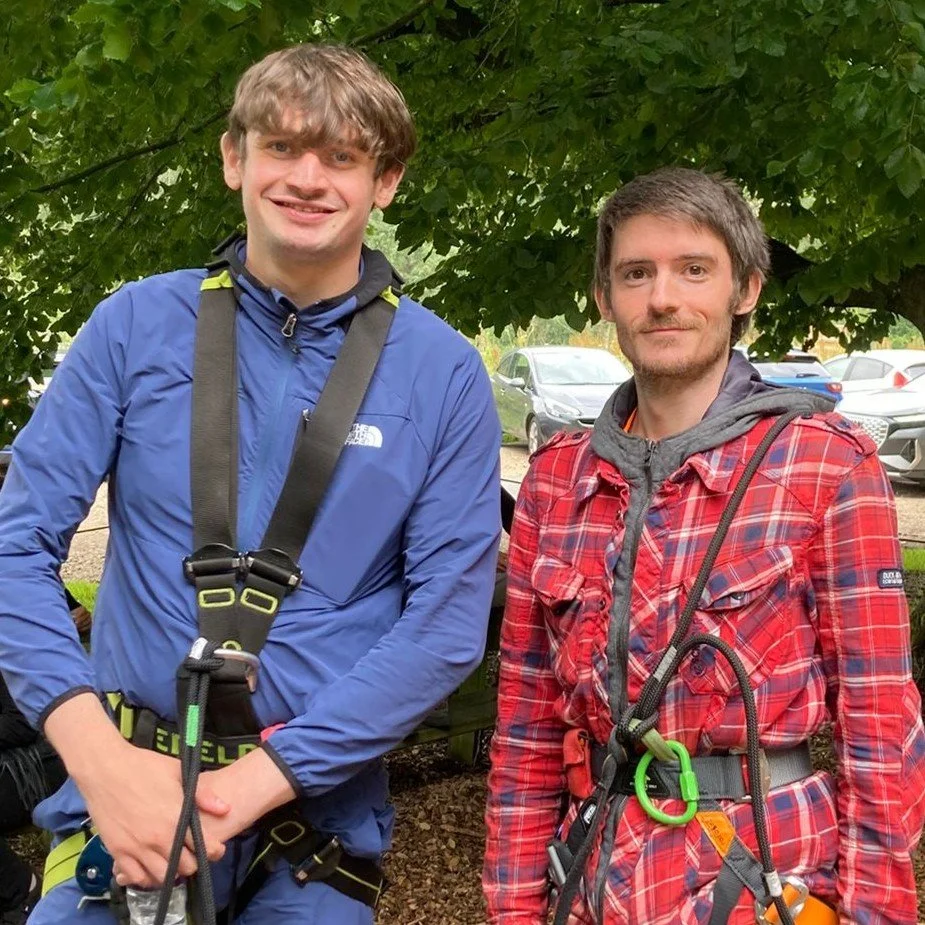Knowing your limits: why quitting is not always failure.
Our annual trip to Dalby Forest is a highlight for many at Restore: and I don’t just mean the residents! It is consistently our most well-attended trip of the year and this year was no exception, with twenty-two residents joining the day out and choosing either to go on a walk through the woods, or to tackle the ‘Go Ape’ high ropes course.
We blogged about the high ropes course back in October 2023, contemplating the opportunity it affords our residents to push themselves out of their comfort zones, face their fears and build their confidence. In that blog, we considered how the trip to Go Ape is a perfect metaphor for life as a Restore resident more generally:
The journey most of our residents embark upon, from moving into Restore’s supported accommodation, to being handed the keys to a flat of their own, is one that oftentimes pushes somebody out of their comfort zone.[1]
However, there is another side to this coin: what lessons can we draw from the people who choose not to complete the high ropes course? From the individual who puts on the harness, attends the safety briefing, gets to the first platform several metres up in the tree canopy and then says, “not for me, I’d like to get down now please!” Society in general tells us to perceive this lack of completion as failure, but is there an alternative perspective? I would argue yes, there is…
Far from failure
There is strength in being able to identify our own boundaries; in understanding when a push beyond our comfort zone would be beneficial and when it would be a step too far, taking us into panic, meltdown or burnout. Knowing how to recognise where our own limits lie and how to implement them in our day-to-day lives is far from failure: quite the opposite.
It's also worth noting that everyone has their own limits, and where they are is deeply personal: just as passing your driving test doesn’t automatically mean that you are sufficiently competent in your driving abilities to enter the Monaco Grand Prix, so each human being has their own limitations, and we should not expect them to be in exactly the same place for every individual. Compassion and tolerance for others is crucial in this regard; just because I find something simple doesn’t mean the person sitting next to me is somehow deficient because they struggle with it, and vice versa.
The Restore approach
There are some forms of quitting which are extremely positive, of course: nobody questions the benefit of quitting smoking, for example! The ability to identify one’s own strengths and limitations is something we not only recognise, but actively encourage in our residents. For example, encouraging a resident who struggles with gambling to remove betting apps from their phone is a positive form of quitting. A recovering alcoholic knows that it is better to decline an invite from a friend to spend the evening in the pub, because they are recognising the potential detriment that being around other people drinking alcohol could have upon them: keeping this boundary is crucial for their recovery journey. A resident who struggles with maintaining positive mental health is respecting their need for downtime and rest when they only apply for part-time work: they are protecting their wellbeing by ensuring they do not take on too much pressure, thereby risking a mental setback. Utilising one of our single occupancy bedsits for a resident who has autism is respecting their need for structure, routine and space that may not be available to them in shared accommodation. Acknowledging and supporting an individual to preserve these boundaries helps our residents to maintain their wellbeing.
Jesus had boundaries too!
Although Jesus was -and is- fully God, during His time on earth He was also fully man, and as such, experienced a wide range of human emotion. For instance, we know He felt weary, because Scripture tells us He slept (Mark 4:38); we know He felt frustration in certain situations (such as Luke 9:41); and we know He sometimes sought solitude, either as a way to replenish His energy (as in Luke 5:16), or as a way to prevent an occurrence that was not part of God’s plan, such as when the people wanted to make Him king by force after the feeding of the five thousand (see John 6:15). Although God Almighty is limitless, Jesus the Son of God modelled for us the human need to step back and take time to reflect.
Conclusion
In short; knowing your own limits is not failing! The ability to say “this isn’t my skill,” or “I need to take a step back,” demonstrates a level of self-awareness that ought to be commended. In this, our fifteenth anniversary year, the team at Restore are passionate about helping residents familiarise themselves with their own strengths and abilities, but also their boundaries. In doing so we are fulfilling our intention to serve the whole person and to see people’s lives transformed through our work.
To find out more about the work of Restore please:
· sign up for our monthly newsletter
· follow us on Facebook
· follow us on Instagram
If you would like to support our work financially, please donate here. Thank you.
[1] ‘Leaps of faith: high ropes and life lessons’ was published in October 2023. This blog is no longer available on our website, so if you would like a copy, please get in touch.

